26Aug
Agronomy Update Spring 2022
Words by Craig Rodgers, Ruralco Group Manager On Farm Sales
Once again, we have seen some extreme weather through the winter period and while not as damaging as the previous year the excess water across vast areas of Canterbury has been visually obvious across prolonged periods. Farmers have managed winter grazing well, utilising drier areas and minimising damage where possible to heavier areas. September and October weather can still be variable also, although at time of writing we are seeing temperatures lifting which should supply sufficient drying in some areas to enable some soil preparation for spring crops. There have been minimal seed plantings through winter and preparation for early pasture renewal is yet to get underway. The variable soil temperatures throughout spring can affect the establishment of pasture and crops and can result in multiple weed strikes.
Cereals
Autumn sown cereals have endured a wetter than usual winter but seem to be handling the conditions well. Spring cereals may be sown later this year due to current conditions and on some heavier soils this may not be until well into the spring. Early indications are that cereal sowings may be up on previous years with strong market pricing, also some good long-term contracts and pricing should ensure some security for Farmers. Most varieties remain available with demand being driven by the recently released FAR cereal report that has identified some newer varieties that are performing well in local trials.
Pasture management
Initial indications are that pastures have been damaged over the winter period and there will be substantial re-grassing programmes to be completed in late spring and through the summer. Protection of good pastures will be important over the next couple of months especially when feed is required later in the spring, most damage happens in this period as stock numbers return to pastures and variable weather has wet and muddy underfoot conditions. Monitoring performance of each paddock during this period also helps identify those that are underperforming dependant on their growing characteristics, and recovery from winter grazing damage. We are likely to see renovation of pastures also through the spring period as farmers monitor and plan out pasture renewal programmes. Once we have warmer spring conditions, keeping pasture cover within the optimal range of growth will help to achieve high growth rates, high utilisation, and high pasture quality.
Pasture renewal
There continues to be good discussion around the DairyNZ Forage Value Index (FVI) when selecting varieties. With the benefit of seasonal trends for each cultivar it can help identify what will suit your farm. Not all varieties are the same, therefore it is important to have a good balance of pasture species to suit the climate, rainfall, and irrigation you have on your farm. Check out the FVI here.
Competition
While the usual weed spectrum will be there this spring, it is important to remember any sort of competition in your crop or pasture affects the establishment and removing it at the earliest possible stage should give plants every possible chance to achieve its best yield potential. Also monitor closely for emerging weeds and disease and work closely with the person monitoring your crops and who is applying chemical, and ensure recommendations are completed as early as possible.
Seed bed preparation
While current conditions are not suitable for paddock preparation it is important to not take short cuts once underground conditions have improved. A planned spray programme to eliminate the previous crop and weeds will be just as important as leaving the paddock long enough for chemical to actively work this year. While time may be against you through this period the long-term reward of preparing and establishing a crop or pasture will outweigh a rushed job. It is important you put the time into preparing a good seed bed, which is vitally important for establishment of pastures and crops. Seedbed consolidation helps conserve moisture and allows a seed drill to achieve the correct sowing depth.
Fodder beet
Variable spring conditions can affect the initial establishment and growth of Fodder Beet crops. Sowing dates are once again a hot topic of discussion, but it mainly comes down to soil temperature as sunshine hours can be variable through September and October. The drilling of Fodder Beet is generally determined by the availability of contractors and locking in a set date can sometimes be the easiest, and then build your weed spray programme dependant on spring conditions. Varietal options available in the market will be similar to previous years and although there is always an urgency around the availability of some varieties we have never run out in previous years, sometimes the odd variety may be in short supply however there always a similar option available. It is important you are sowing a variety that will suit your system and requirements in the winter. Yield can be determined by the growing season and as has happened in the past, a cooler than normal spring meant it is harder to get crops established and keep the weed competition at bay.
Related
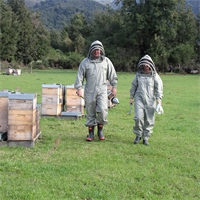
Ben Mee has replaced the buzz of chopper blades with a very different sort of buzz as he and his wif...
Read More
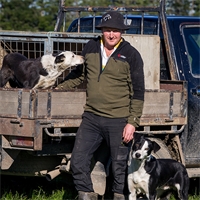
A few things have changed since the Methven Collie Club’s first dog trial was held in August 1897. ...
Read More
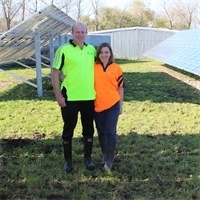
Canterbury based electricity retailer Kea Energy may be smaller than the average energy provider but...
Read More
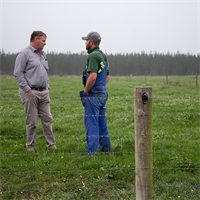
The autumn period has again produced a consistent spell of warmer weather and with a steady stream o...
Read More

Congratulations to all the winners at the 2022 Ruralco Supplier Awards
Read More
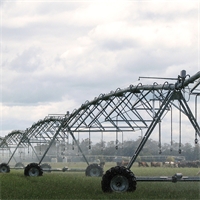
There’s no doubt that farmers have a lot of challenges ahead of them – particularly in keeping up ...
Read More